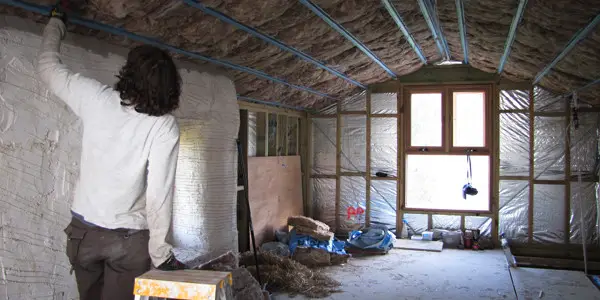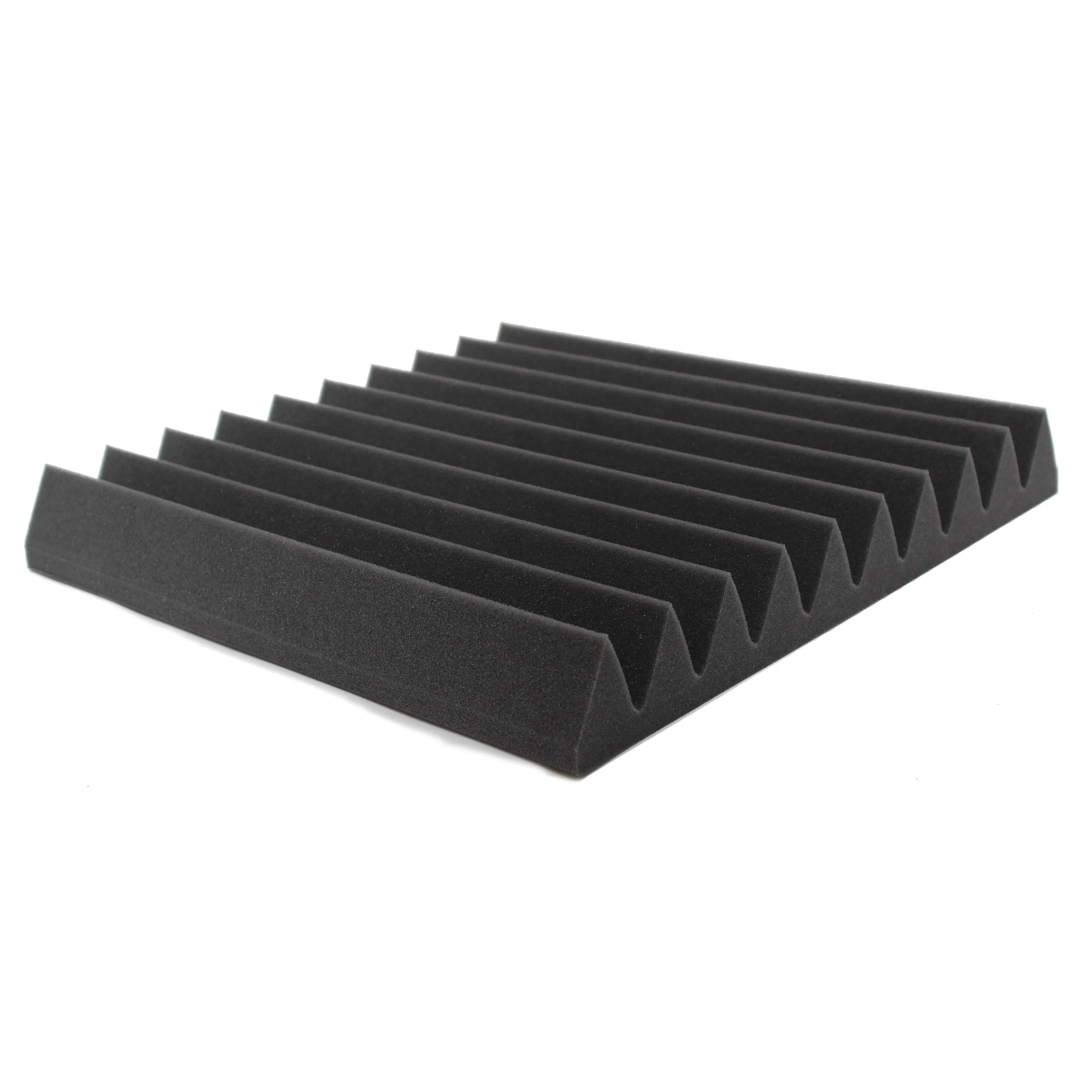
Are Polystyrene Ceiling Tiles Illegal in Rented Properties?
If you’re renovating a derelict property, there’s a good chance you’re looking to do so at the lowest possible cost. It makes sense to consider unconventional building materials that offer safety, aesthetics, and cost-effectiveness.
Polystyrene ceiling tiles are still one of the most widely used materials in rental properties today. They look great, are affordable, and a favourite choice for landlords.
But is it a smart choice?
There are valid concerns that polystyrene tiles pose health and stability risks. They are considered carcinogenic by many prominent health authorities and pollute the environment.
Despite these concerns, it is legal to use polystyrene tiles in rented properties. The UK has no standards for ceiling tiles used in these properties, putting the decision in your hands.
As a result, in this post, we will look at some risks associated with polystyrene ceiling tiles. We will also review alternatives that can provide similar benefits without posing the same health risks.
What are the Dangers Associated with Polystyrene Ceiling Tiles?

Polystyrene ceiling tile at Talissa Decor
Polystyrene ceiling tiles are a popular choice for many landlords and homeowners. They are simple to install and offer a relatively long-lasting ceiling covering.
However, they are not without risks. The following are some risks associated with polystyrene ceilings:
- Poor Fire Ratings. Polystyrene ceiling tiles do not meet building code fire ratings. They do not fare well in high-heat environments, so if you have a polystyrene ceiling, consider replacing it with an alternative to protect your belongings from fire damage. The tiles will catch fire as soon as the flames come into contact with them. Even if the fire does not cause visible damage, the burning polystyrene material inside each tile may cause smoke damage.
- Fumes and Smoke. When you burn polystyrene ceiling tiles, they emit fumes and smoke. Because of their chemical makeup, these materials are flammable when heated to high temperatures. These fumes can be toxic and cause serious health problems if inhaled or ingested by humans or animals.
- Difficult to Clean. Polystyrene ceiling tiles are made of polystyrene plastic. It is extremely difficult to remove from surfaces once applied because of its adhesive nature. Polystyrene tiles can also be difficult to clean if dust accumulates.
- Trap moisture and mould growth. Moisture can cause mildew, a fungus that causes rot and decay in materials. It is especially problematic in bathrooms where people shower or bathe frequently.
Alternatives to Polystyrene Ceiling Tiles
You can replace polystyrene ceiling tiles with various non-harmful and fire-resistant alternatives. These includes:
Fibreglass
Fibreglass ceiling tiles are made from glass fibres encased in resins. They are available in white or natural finishes, and you can install them using a peel-and-stick method.
Since fibreglass is waterproof, fireproof, and in certain forms, even soundproof, it is beneficial for any household or commercial setting. Fibreglass ceiling tiles are lightweight, simple to install, and easily cleaned with soap and water.
The only disadvantage is that fibreglass tiles require professional installation and removal to prevent fibres from becoming loose.
Recycled Foam
Although recycled foam is made of polystyrene, you can reuse it as non-toxic, biodegradable products. Recycled foam is also an excellent choice for those who want to reduce the environmental impact of their space.
Acoustic Foam

Most people frequently use acoustic foam in ceilings as a sound barrier. The material is made by combining polyurethane and air bubbles. It comes in sheets you can cut to size or install over existing tile surfaces as shingles.
If you have a loud neighbour or work in a noisy environment, acoustic foam ceiling tiles will give you the privacy and quiet//you need. They work by absorbing high-frequency sounds that can cause an echo or reverberation within the room. They also help keep noise from escaping through cracks or crevices in walls and ceilings where it might interfere with neighbours’ enjoyment of their homes.
Acoustic foam provides good soundproofing but not as much insulation as fibreglass—it works well in rooms that require little insulation. It is lightweight and easy to install, just like fibreglass, but less expensive.
Drywall
Drywall is a great option for ceilings because it offers a lot of versatility. You can paint, stain, or texture drywall. When you want your ceiling to have a plastered look or stuccoed, drywall is the way to go.
Drywall costs significantly less than polystyrene tiles, making it an attractive option for those looking to save money on their projects. You can also purchase drywall in bulk, saving even more money on your project.
Drywall is also easy to install and more aesthetically pleasing too. It is easier to cut into different shapes or customise based on what you want in your space and how much room you have for installation. You just need to cut it into panels and attach them with screws or nails. Then cover any exposed edges with additional pieces of drywall or trim boards.
Drywall is also more durable than polystyrene. Therefore, it will not crack or break as easily, and you won’t have to replace the ceiling tiles as frequently.
Wood Fibre
AlphaSorb® Wood Fiber Acoustic Ceiling Tile
Wood fibre comes from trees or plants and has been used as an alternative to polystyrene ceiling tiles since ancient times. However, today’s wood fibre products are much improved over their predecessors due to advancements in technology and manufacturing methods.
You can use wood fibre to create insulation panels for your walls or ceilings. Although it costs more than fibreglass and provides less insulation and soundproofing, it has some thermal resistance.
Because it is made from renewable resources, wood fibre is also more environmentally friendly than polystyrene. As a result, it will not contribute to the world’s growing plastic waste problem. Furthermore, wood fibre tiles last longer than polystyrene tiles. They are stronger and less prone to breaking or cracking, so they will last longer and require less upkeep.
So, Should You Live in a Rental With Polystyrene Ceiling Tiles?
The crux of this debate is whether installing ceiling tiles with a flame-retardant additive is legal. Many laws protect consumers from toxic materials such as asbestos. However, regulations regarding flame retardant additives are lacking.
The Regulatory Reform (Fire Safety) Order 2005 requires ceilings in privately rented properties to meet certain fire safety standards. While polystyrene is unsafe, you may not have been informed of any potential hazards before being handed the keys.
On the other hand, polystyrene ceiling tiles with a fire-resistant coating would be fully compliant. An informed landlord would have offered fire-resistant polystyrene ceiling tiles as the safer option.
